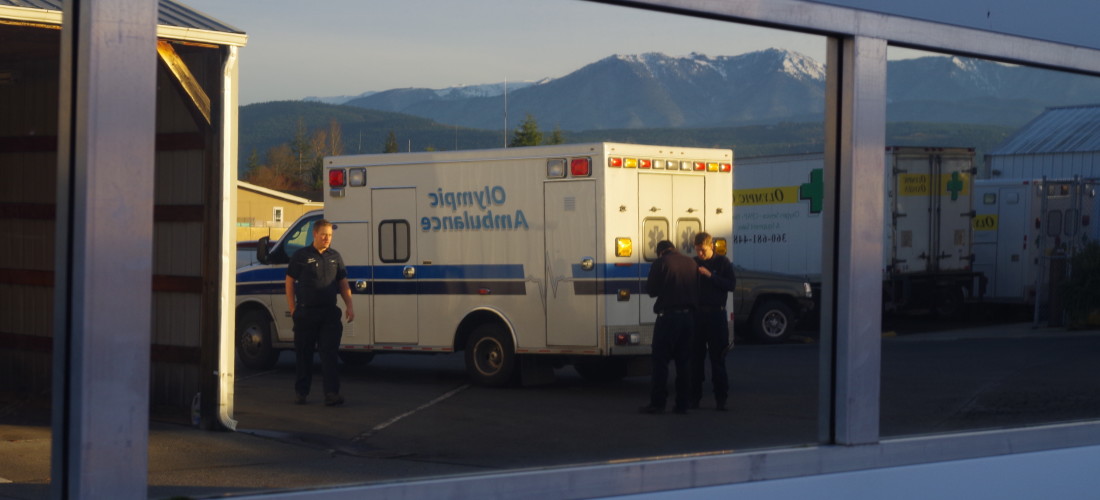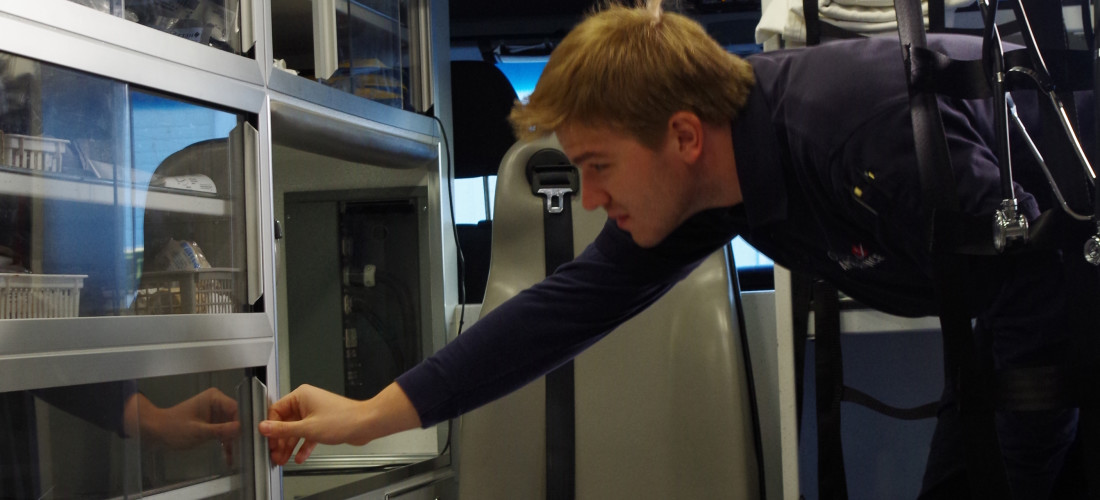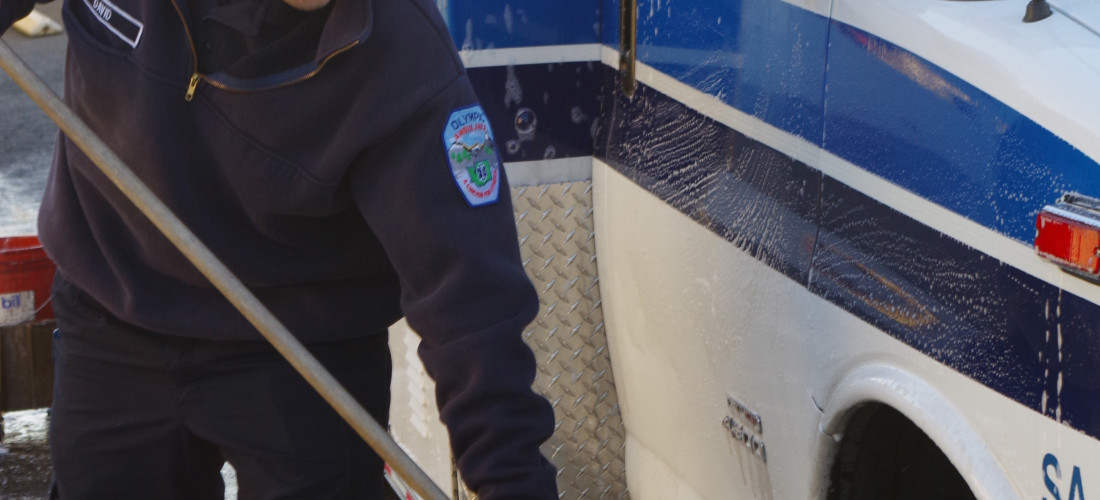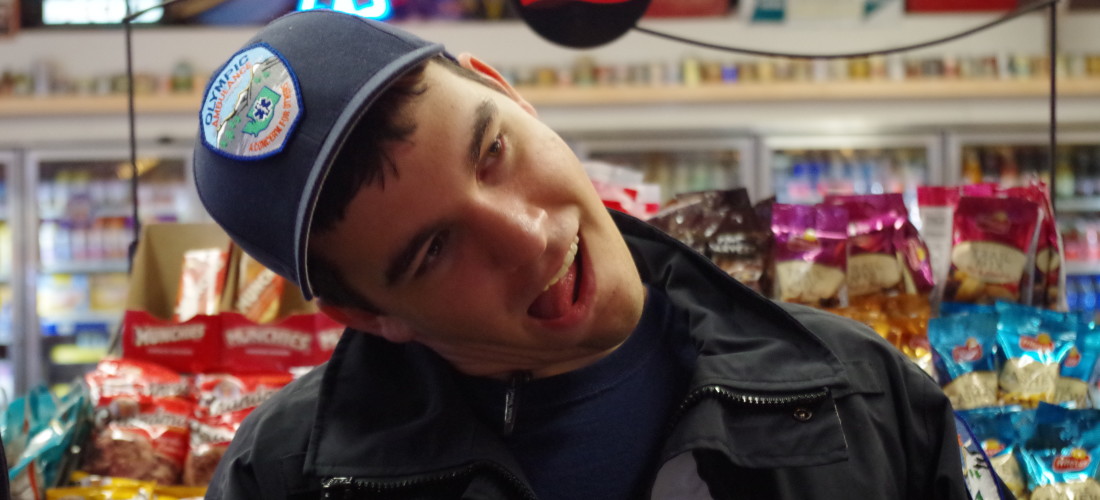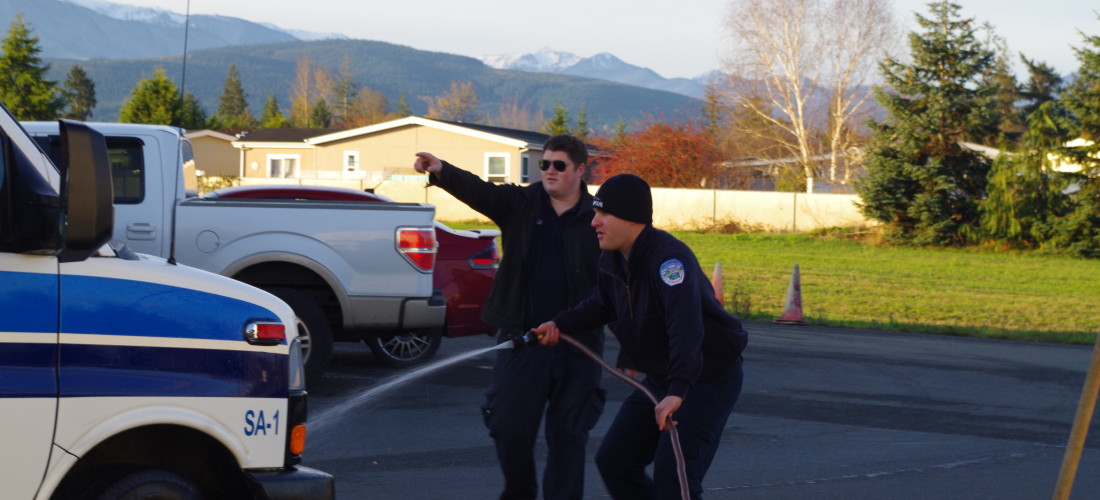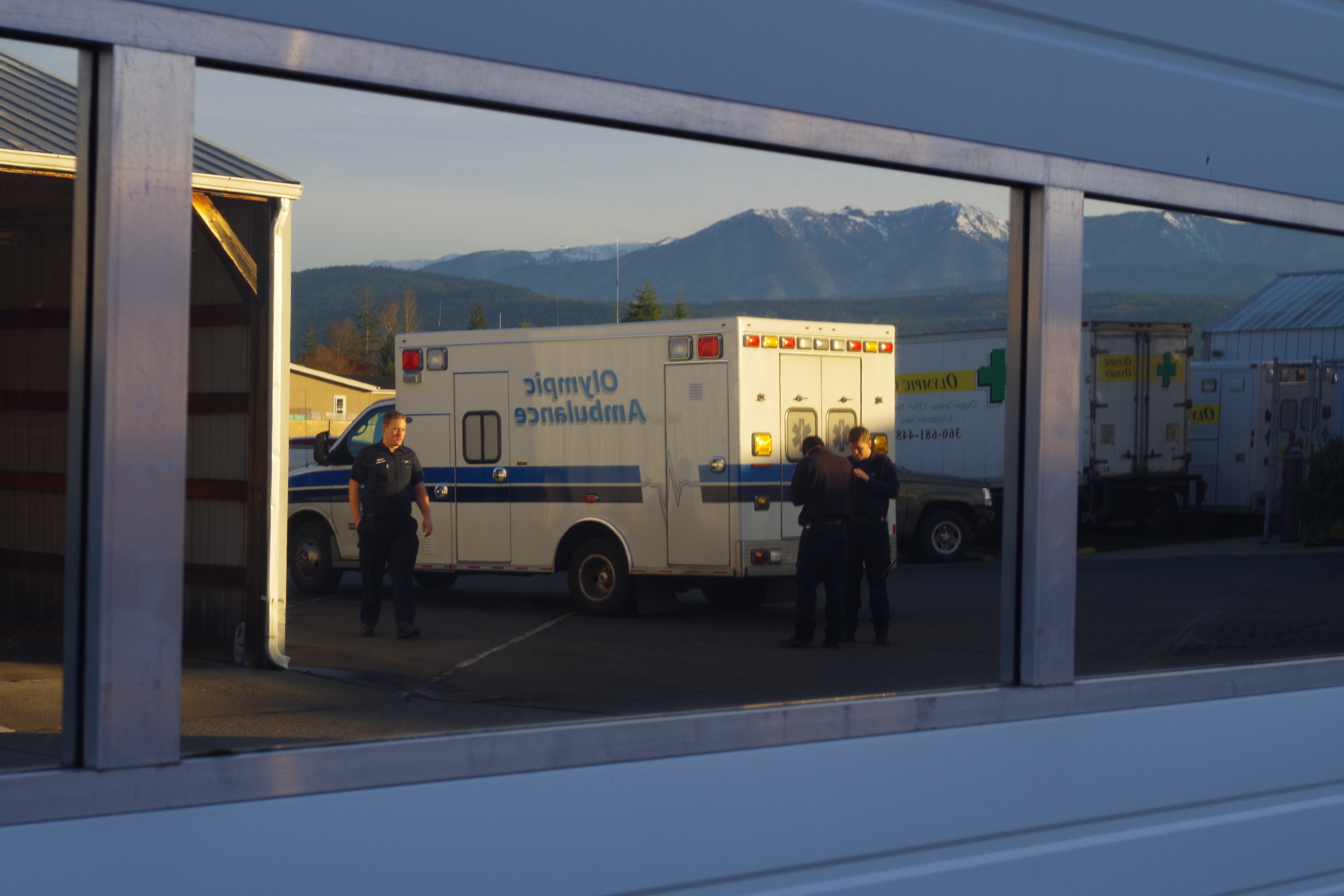
By Melissa Copeland
While it can be difficult to make an impact community wide, Emergency Medical Technicians (EMT) get the opportunity to make a difference for individual people when they are having a horrible day.
“I find the job very fulfilling. I enjoy giving back to my community in the best way I can. It’s a blessing to help people in their time of need,” said David Copeland, an EMT for Olympic Ambulance and a full time student at Peninsula College.
Many work-days can be filled with heart wrenching calls and “hell shifts,” which are as exhausting as they sound.
Most of the time, these EMT’s are busy running calls and assisting people on the worst day of their lives.
Olympic Ambulance is a privately owned transport company located on the Olympic Peninsula.
Shifts at Olympic Ambulance last 24 hours, so the crews eat, sleep and basically live at Base while on shift. While some days can be very hard on the EMT’s, they know they can always depend on their co-workers for support and emotional breaks.
Copeland is also very involved in student government. He is Peninsula College’s Associated Student Council director of legislative affairs. In this position, Copeland’s job is to make sure the ASC follows the bylaws and constitution already set in place.
“I have really compassionate coworkers who are always willing to cover shifts for me in order to attend school full-time. I give up about 14 to 21 hours a week just to go to school and even more time for student government. School and my work on the ASC is always my number one priority,” Copeland said.
Copeland has plans of attending a university to study business and economy. “I want to be a part of making important changes to the healthcare system. This field will allow me the chance to help make those changes.”
Copeland has been with Olympic Ambulance for almost six years and is a shift lead since August 2015.
His proudest moments as an EMT includes delivering a baby in the back of the ambulance and saving his father’s life.
“My father suffered a heart attack last summer and I’m thankful I could be home at the time. I was able to deliver proper CPR at the time of the incident,” Copeland said.
Copeland also takes part in the honors program.
“It’s a good way for students to be in a more competitive environment. It gives me the opportunity to challenge myself, to pursue my academic interests and to best display my skills and capabilities as a scholar,” said Copeland.
Kristin Kudebeh was also a PC student and has been an employee at Olympic Ambulance for two years.
“I became an EMT because I used to be a lifeguard, and I wanted to learn more and be able to help people in need better,” Kudebeh said.
Kudebeh is currently a part-time student working toward finishing her prerequisites. She plans on attending medical school in order to become a physician assistant.
Kudebeh said that she loves her job and helping people when they’re having the worst day of their life.
Another crew member, Cade Friedman, who is 22 years old, started working at Olympic Ambulance in July 2015. Only being with the company for five months, he is still considered to be a “probie” by other crew members.
A probie is a new crew member who is on probation, ensuring they are a good fit for Olympic Ambulance.
Friedman didn’t know what to do next with his life, but he knew he wanted to do something meaningful. With one brother-in-law being a firefighter and another a medic, he had the idea to become an EMT.
Upon finishing courses required to be an EMT, he applied at Olympic Ambulance.
Both Copeland and Kudebeh finished their EMT course at Peninsula College, a very rigorous course, according to the instructor of the course, Keith Bogues of the Port Angeles Fire Department.
Bogues’ job as the instructor of the program is to make sure that the class meets the guidelines set by the Washington State Department of Health.
Bogues said that it’s crucial to be a team player in the emergency responder field and that it helps to get to know your co-workers well.
“Learning is a process that never ends.” Bogues said, “to this day I’m still learning new things. You need to be committed to excellence.”

